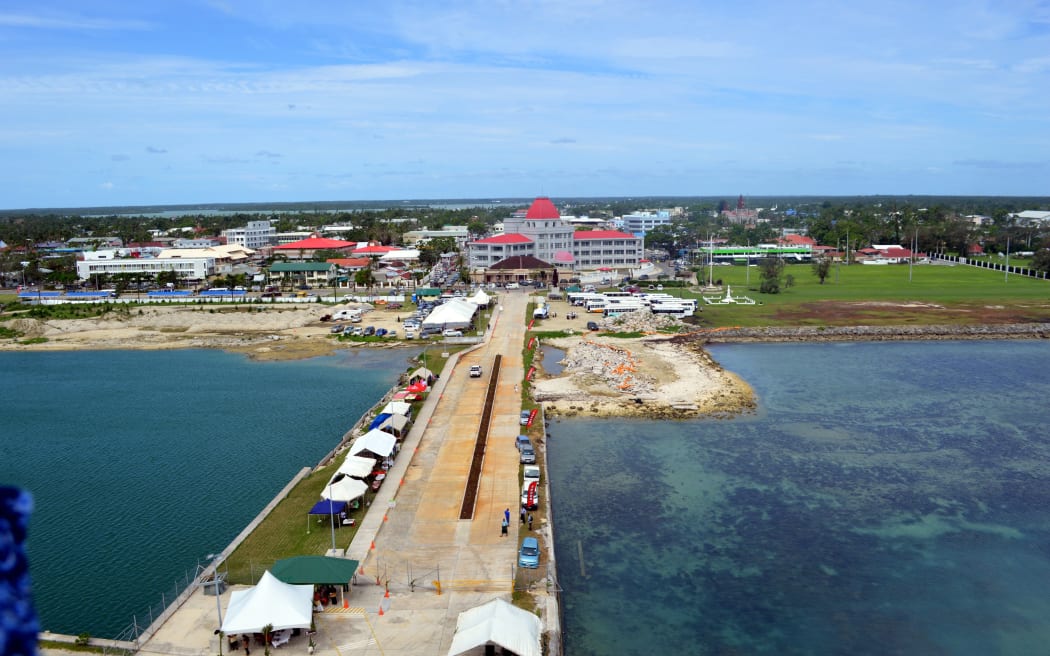
Aerial view of Tonga.
picture: Expedia
Understanding where to separate culture and corruption will be the biggest challenge facing Tonga's first anti-corruption commissioner.
James Christopher Lahat, a New Zealand lawyer and mediator, was confirmed to lead Tonga's anti-corruption commission in parliament last week.
Lahat was appointed as King Tupou VI at a meeting of the Privy Council.
He told RNZ Pacific that what may be culturally correct in Tonga might be considered corruption elsewhere.
“I think the first thing I should do is spend a lot of time listening to people,” he said.
“I need to learn how Tongan culture is different from what I learned in New Zealand and elsewhere and put that cultural understanding into the concept of corruption.
“Because I am fully aware that this behavior, which may be seen as culturally appropriate, may be seen in other places as corruption.”
He used the widely accepted culture of “gift-giving” in Pacific countries as an example that he said should be considered.
“So, I know that giving gifts, for example, is a big part of Tongan culture,” he added.
“There will sometimes be a line between what is culturally appropriate and required, and what goes beyond that.
“So I have to learn a lot about how these things work, so that I have an understanding of what corruption is and what is culturally safe.”
The culture of gift-giving has recently been part of public discussions during court cases where a number of Tongan Members of Parliament lost their seats due to being found guilty of acts of gift-giving during election campaigns.
He said that there will be a lot of education and awareness work so that people understand what corruption is and how it is defined.
“I think my primary role is actually to educate so people understand what should and shouldn't happen. Then there's the deterrence element as well,” he said.
“From time to time, it will be necessary to take steps to identify corrupt practices, and ensure that they are announced and publicized so that they are discussed at all levels so that people understand whether it should happen or not.”

James Christopher Lahat
picture: Twitter.com / @ChrisLaHatte
Winning trust
Lahat also said he and his team will need to gain people's trust in the committee and their work, which will be crucial to their work.
“People will need to have confidence in the commission and trust that what they report can be investigated and, if found guilty, those involved will be dealt with in accordance with the law.”
The office has been on the legal books for about 17 years, he said.
“People are not necessarily inclined to trust the position until it is demonstrated that it has a strong standing in parliament and governance in Tonga.”
Lahat said he was looking forward to the challenge and would take up his position in Nuku'alofa on July 1, beginning his four-year term.
Prime Minister Huacavamilico said Lahati's appointment is a big step forward for the Kingdom.
“This is a great milestone for Tonga now with the appointment of the first Anti-Corruption Commissioner.”
The Anti-Corruption Commission Law was first passed in Parliament in 2007.
But Parliament only passed the anti-corruption bill in February 2023, after Huacavamilico and his government passed it, allowing the creation of the anti-corruption watchdog.
Lahat has been practicing as an ombudsman, mediator and lawyer in New Zealand and overseas for more than 40 years.
He said that his experience in the various businesses he has been involved in over the years prepared him for the new position.
“Long overdue” – Lawyer
A local lawyer and former political advisor to two Tongan prime ministers welcomed the new appointment.
“The anti-corruption law came into force in 2007, yet no one has been appointed to this position,” said Lopeti-Sinitoli.
“His Majesty recommended someone when Akilisi Pohiva was Prime Minister, but he vetoed it because he felt that this particular person was too close to the Privy Council.
“The appointment was welcomed because currently the Office of the Ombudsman is the only one that deals with corruption allegations but its area of responsibility is limited to government and statutory bodies.
He said that the Anti-Corruption Commission has greater powers and covers the government and private sectors.
“The appointment of our Anti-Corruption Commissioner is long overdue.”

